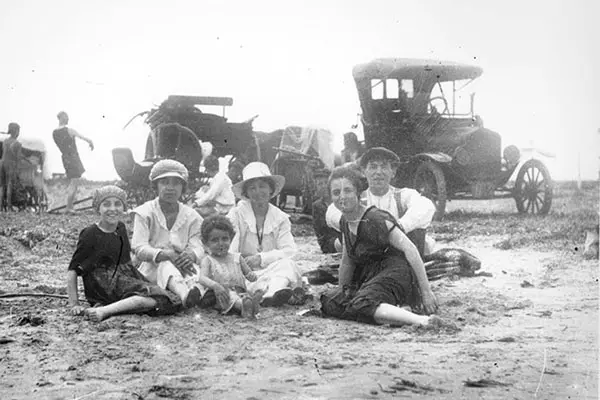 Image by Camara Collection, UMass Lowell Libraries Center for Lowell History
Image by Camara Collection, UMass Lowell Libraries Center for Lowell History
09/17/2020
Boston Globe
By John Laidler
From the whalers, fishermen, and mill workers who settled here in the 19th and early 20th centuries to the Azoreans who began arriving in large numbers in the 1960s, Portuguese people have played a vital role in the region’s immigration story.
Now a new initiative at the University of Massachusetts Lowell will be providing a window into that history and into the unique cultural traditions that Portuguese-Americans have brought to such communities as Lowell, Lawrence, Gloucester, and Hudson.
Through a $300,000, three-year grant from the William M. Wood Foundation, the university’s Saab Center for Portuguese Studies is creating a digital archive of photos, letters, and other materials chronicling the experience of generations of Portuguese-Americans.
The Greater Boston Portuguese-American Digital Archive, which the center is developing in collaboration with the UMass Lowell Libraries Center for Lowell History, will allow free access to the public, according to Frank Sousa, founding director of the six-year-old Saab Center.
“The Portuguese community has been a relatively undocumented group,” said Sousa, himself an immigrant from the Azores, a Portuguese archipelago. “I thought this was a fantastic opportunity to really document that history and make it available not only to Portuguese-Americans but to anyone interested in their story or in immigration history.”
Sousa previously helped create a separate Portuguese-American archive at the University of Massachusetts Dartmouth when he was working there in 2009. But that archive concentrates on the South Coast while the new one will focus on Boston, the area north of it, and part of the MetroWest region.
The new archive is modeled after UMass Lowell’s two-year-old Southeast Asian Digital Archive.
The Saab Center will build the Portuguese-American archive by scanning materials loaned or donated by area families and institutions, according to Sousa, who is also a professor in the university’s Portuguese program.
Gregory Fitzsimons, an historian and former project director at the Lowell National Historical Park, is serving as the archive’s project director. The Saab Center and the Center for Lowell History — which is housed at the historical park — also are hiring an archivist.
“This is important work and I am swelled with pride that it is happening at UMass Lowell,” Carlos de Sousa, a Tyngsborough resident and board member of the Saab Center, said by e-mail.
“We are part of what is the American story,” de Sousa, the son of Azorean immigrants, said of Portuguese-Americans. “So our story needs to be told and therefore documented for the sake of future generations.”
Sousa said there have been three major waves of Portuguese immigration to New England. In the first, from 1820 to 1870, Portuguese immigrants arrived mostly to work in the whaling industry. From 1880 to 1925, many came to work in cotton mills, notably in Fall River. New Bedford, Lawrence, and Lowell.
During the third major wave, many Azoreans settled here after a 1965 federal law opened the way to expanded immigration, continuing to about 1983. Sousa estimates Massachusetts is currently home to more than 300,000 people of Portuguese descent.
Due to COVID-19, organizers have had to develop procedures to ensure the safety of people dropping off materials for the archive, and staff. But Sousa said with those protocols in place, work can now proceed in earnest.
“We often hear the phrase ‘if that object could talk, the stories it could tell,’” de Souza reflected. “What most people don’t realize is that objects do tell a story but it takes connecting the dots through research to convey it. That work will now be done, bringing together what I hope will be a treasure trove of photos, letters, and other materials.”
Anyone interested in loaning or donating materials to the archive can e-mail Fitzsimons at gregory_fitzsimons@uml.edu or call 978-934-5199.
